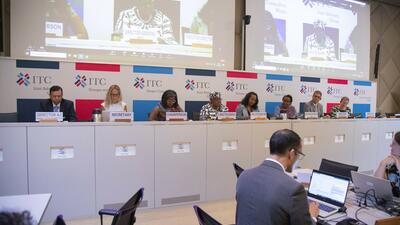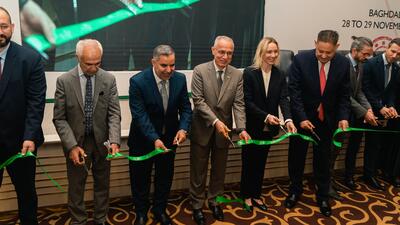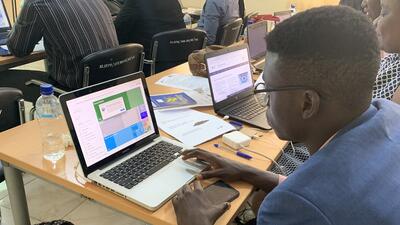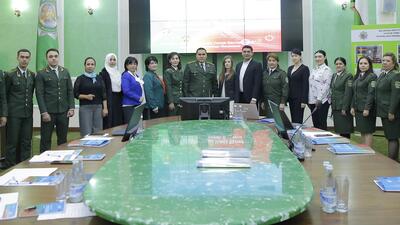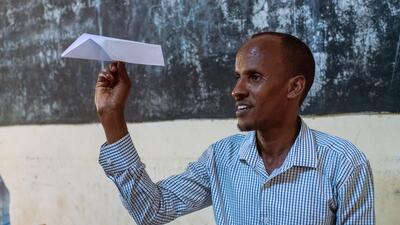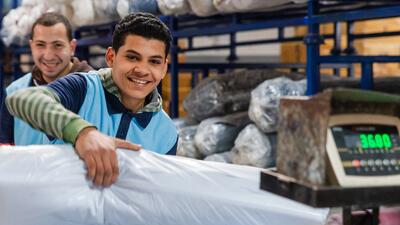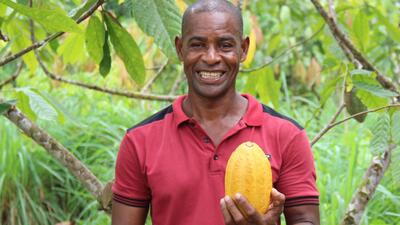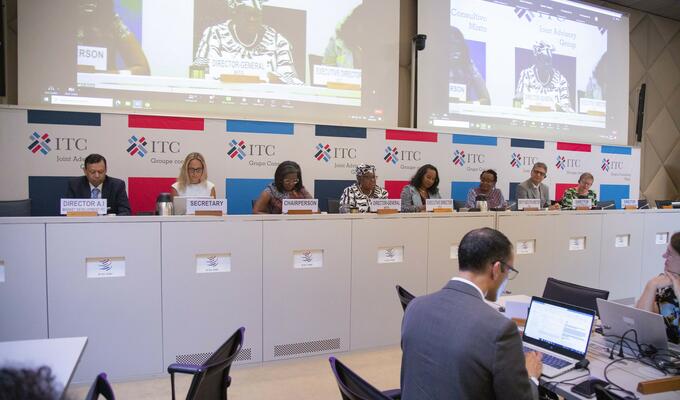

‘New trade routes, new opportunities’: Joint Advisory Group reviews ITC’s 2022 work
In the face of multiple ongoing global crises, the International Trade Centre (ITC) adapted and delivered results for those most in need – in particular for women, young people and members of vulnerable communities – that’s according to members of the Joint Advisory Group (JAG).
JAG delegates meet annually to review the work of ITC over the previous year, on the basis of the Annual Report, and to make recommendations on its future work. The 57th edition of the ITC annual stakeholder meeting took place at the World Trade Organization (WTO) on 20 July 2023, under the theme of ‘new trade routes, new opportunities’. The session was chaired by Nadia Theodore, Ambassador of Canada to the WTO, who took on the role from Usha Chandnee Dwarka-Canabady, the Permanent Representative of Mauritius to the United Nations Office at Geneva.
At the start of the session, WTO Director-General Ngozi Okonjo-Iweala mentioned that trade must work for people, and this is where ITC steps in, by supporting small businesses to compete in international markets. She added that trade is part of the solution to confronting common global challenges, such as climate change, and that partners must work closely together to raise resources and scale up successful projects to serve those who need it most, including women and those in priority regions, for example, across Africa in the context of the African Continental Free Trade Area.
Rebeca Grynspan, Secretary-General of the United Nations Conference on Trade and Development (UNCTAD), highlighted three priority areas to pay attention to, going forward: making the digital revolution work for all, including women and people in rural areas; ensuring the low-carbon transition is a just one; and integrating small businesses into global value chains. She shared examples of collaboration in areas such as e-commerce and market intelligence, for example, through the Global Trade Helpdesk, an initiative of ITC, UNCTAD and the WTO.
In her opening remarks, ITC Executive Director Pamela Coke-Hamilton said: ‘This was a year when ITC flew the flag of small businesses on the international stage, reminding the world that one cannot truly speak of an inclusive trading system while ignoring the majority of companies, the majority of workers and the majority of society.’
Highlighting ITC’s work
Throughout the day, 46 delegates delivered statements, with many referencing how ITC continued delivering results at a time of multiple crises.
Highlights include delivery in 2022 reaching over $150 million in 130 countries – the highest ever, following a previous record-breaking year in 2021.
ITC interventions led to more than 27,000 small businesses improving their competitiveness, of which 10,000 were led by women. Thanks to ITC training and tools, nearly 10,000 small businesses transacted international business, of which more than 3,000 were led by women.
Delegates referenced successful implementation of the first year of the new strategic plan and ITC’s business model of making small businesses more competitive, referencing the Annual Report and the Annual Evaluation Synthesis Report.
Delegates commented on ITC Moving Forward, the roadmap to building a stronger ITC, tackling prohibited conduct and creating a better workplace. Delegates expressed appreciation for ITC’s efforts to improve the working environment and transparent dialogue and updates, saying they were reassured by the steps taken and looked forward to updates going forward.
Delegates referenced ITC’s areas of work as timely and well-chosen, including the focus on sustainability, inclusivity and digital trade. They also commented on ITC’s flexibility in light of the challenges of COVID, climate change, conflict and cost of living.
At the same time, delegates challenged ITC and the membership to do more, including by scaling up its interventions and continuing to collaborate with other agencies. Delegates asked ITC to keep focusing on the neediest and most vulnerable, from least developed countries to countries on the frontlines of climate change, including small island developing states.




